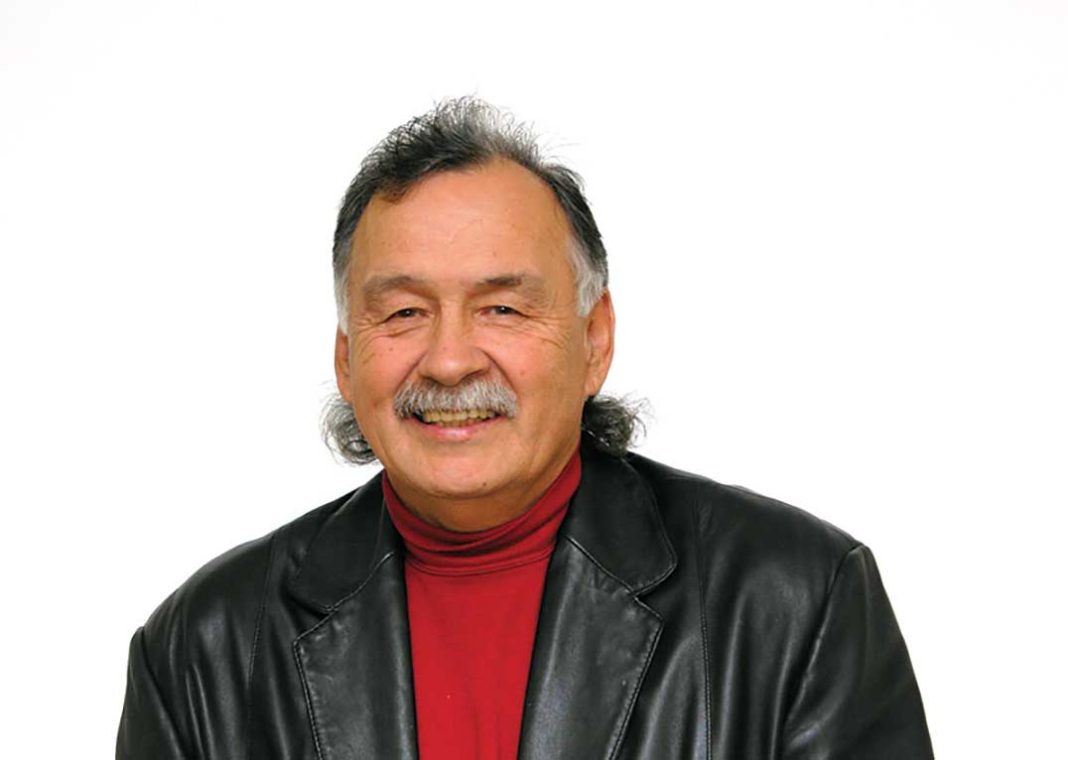OTTAWA – The last couple of years have proven to be quite a ride for Aundeck Omni Kaning resident Reggie Leach. Mr. Leach is well known to hockey fans as the Riverton Rifle whose deadly puck-slinging spanned an NHL career of 934 regular season games where his deadly shot put 381 goals in net. He also garnered 666 points and an impressive 387 penalty minutes. Along the way, Mr. Leach won two Stanley Cups (1972, 1975) with the Philadelphia Flyers and went on to earn the Conn Smythe Trophy (NHL MVP) in 1976, that accolade despite being on the losing side of the Stanley Cup final that year.
In 2016 Mr. Leach was awarded the Order of Manitoba, and earlier this year he was inducted into the Philadelphia Hockey Hall of Fame and received an honourary doctorate from Brock University. Those honours would be pretty hard to top in anyone’s playbook, but earlier this month a call came that nearly knocked the NHL veteran off his skates. The voice on the other end of the line informed him that he was to join the ranks of the Order of Canada—the nation’s highest civilian award.
“To me it was quite a surprise,” admitted Mr. Leach. “It has been one of those years that all the stuff I have been doing came together. I am very honoured to have been selected. There are lots of great people in there. I’m in good company with guys like Bobby Clarke and Gretzky.”
While Mr. Leach is justifiably proud of his accomplishments on the ice, it is in the work he has applied himself to since retiring from professional hockey that consumes his attention these days. In addition to running Shoot to Score, a popular hockey school for young players, Mr. Leach is once of the most sought after motivational speakers for youth on the circuit today.
“I’m more proud of what I did after the NHL,” he said. “I always encourage kids to make better life choices than I did,” he added with a slight smile. Mr. Leach is noted for using his own experiences and less than ideal choices as a teaching tool.
Making those choices is even harder than it was when he was growing up, Mr. Leach noted. “It’s a different lifestyle for kids today,” he said. “We were responsible for our actions. Today the schools can’t punish, the parents can’t discipline their children. I remember as a kid I was strapped at school all the time.”
Not that he is any kind of staunch advocate of corporal punishment, but the lack of consequences he sees facing youth today presents a different set of challenges growing up to be a responsible adult.
As for his personal philosophy, he notes it is pretty simple. “Be kind,” he said. “Do your best and move on with it. As a public figure I have learned that you really need to be kind to everybody, it doesn’t matter if you are having a bad day. Don’t bring it with you. I have bad days, but don’t take those bad days to work. That is one of the things that I had to learn.”
Famous for giving his cell phone number to the kids he coaches and talks to at events, Mr. Leach said that he tries to make himself available to those in need of an open ear.
“Everybody needs help now and then,” he said. “When I speak to kids I tell them, ‘if you need to talk to somebody, give me a call’.” Some of those calls come from kids who are now playing on the national teams, sometimes it is just a young person in a small community who needs someone to open up to—in any event, he takes the call.
Mr. Leach has delivered comments to committees at the United Nations (UN) in New York on the important role that sports play in Indigenous communities across the world, and he will shortly be headed to Zurich with his wife Dawn Madahbee-Leach, general manager of Waubetek. Ms. Madahbee-Leach is the vice-chair of the National Indigenous Economic Development Board and sits on a UN board in the same vein and Mr. Leach said that he has really enjoyed the companion role where he gets the opportunity to engage with many world leaders on an interpersonal level.
“My life is in a very good place right now and I am very grateful for that,” said Mr. Leach.
The induction ceremony for the Order of Canada will likely take place at Ottawa’s Rideau Hall sometime in the fall for “for his contributions to the sport of hockey and for his commitment to promoting the role of sport in building healthy communities.”



